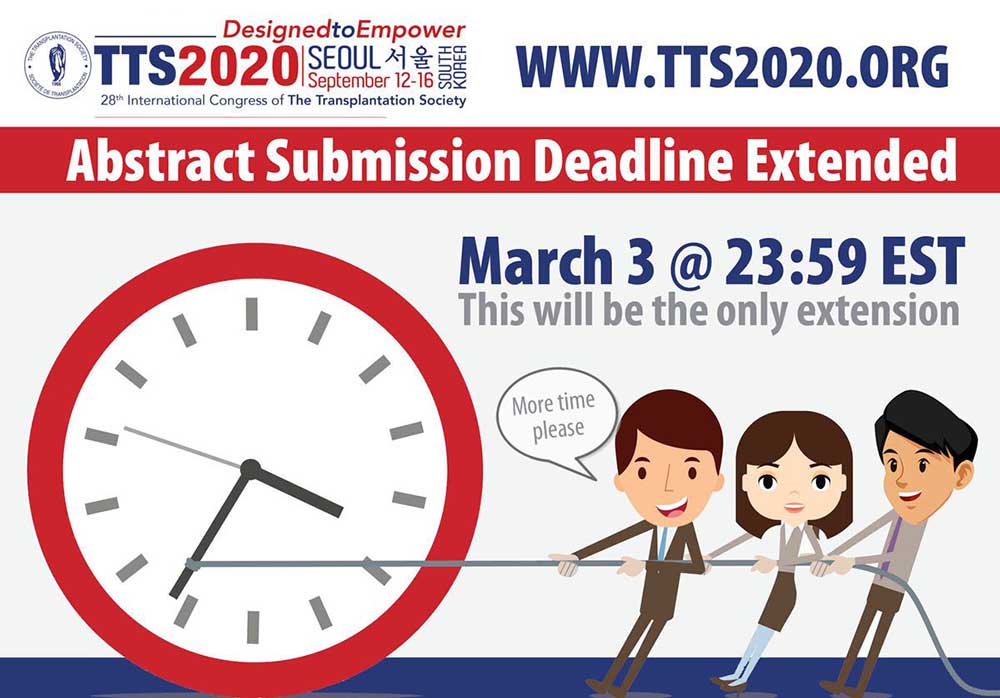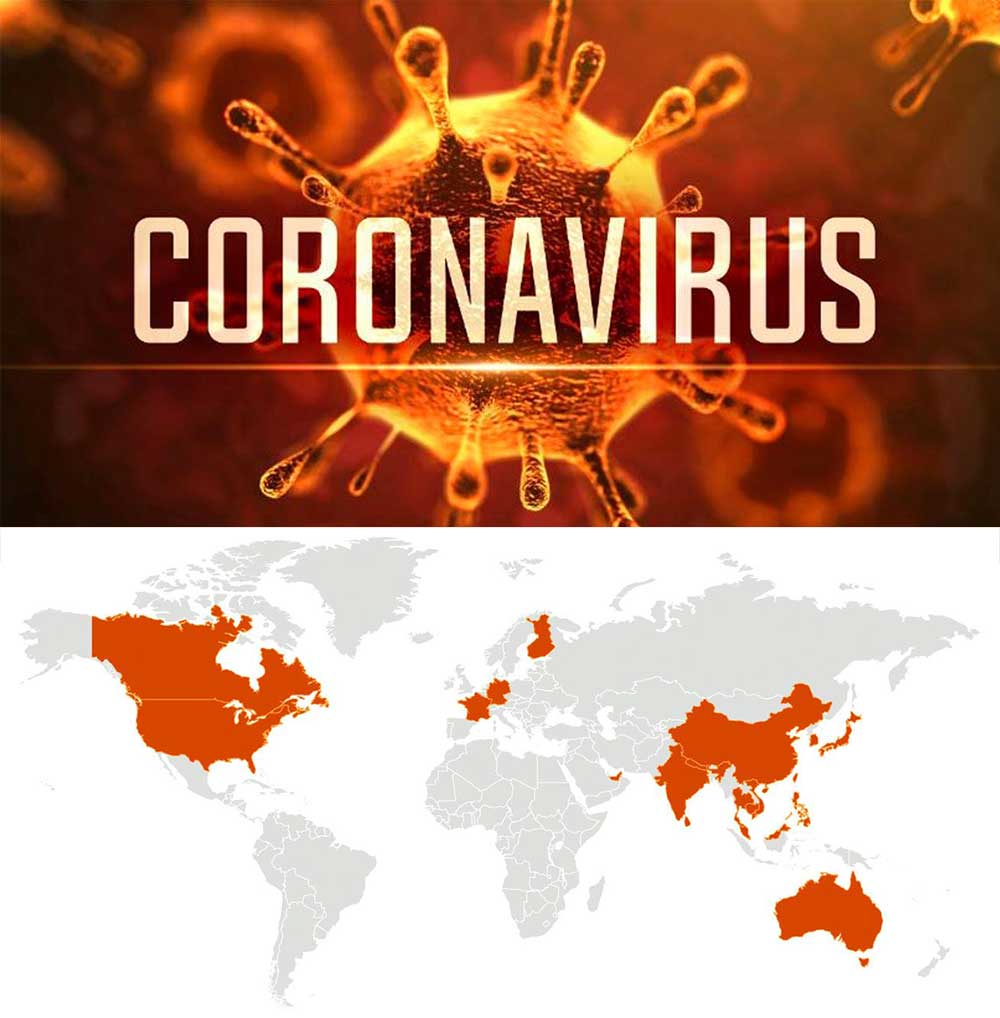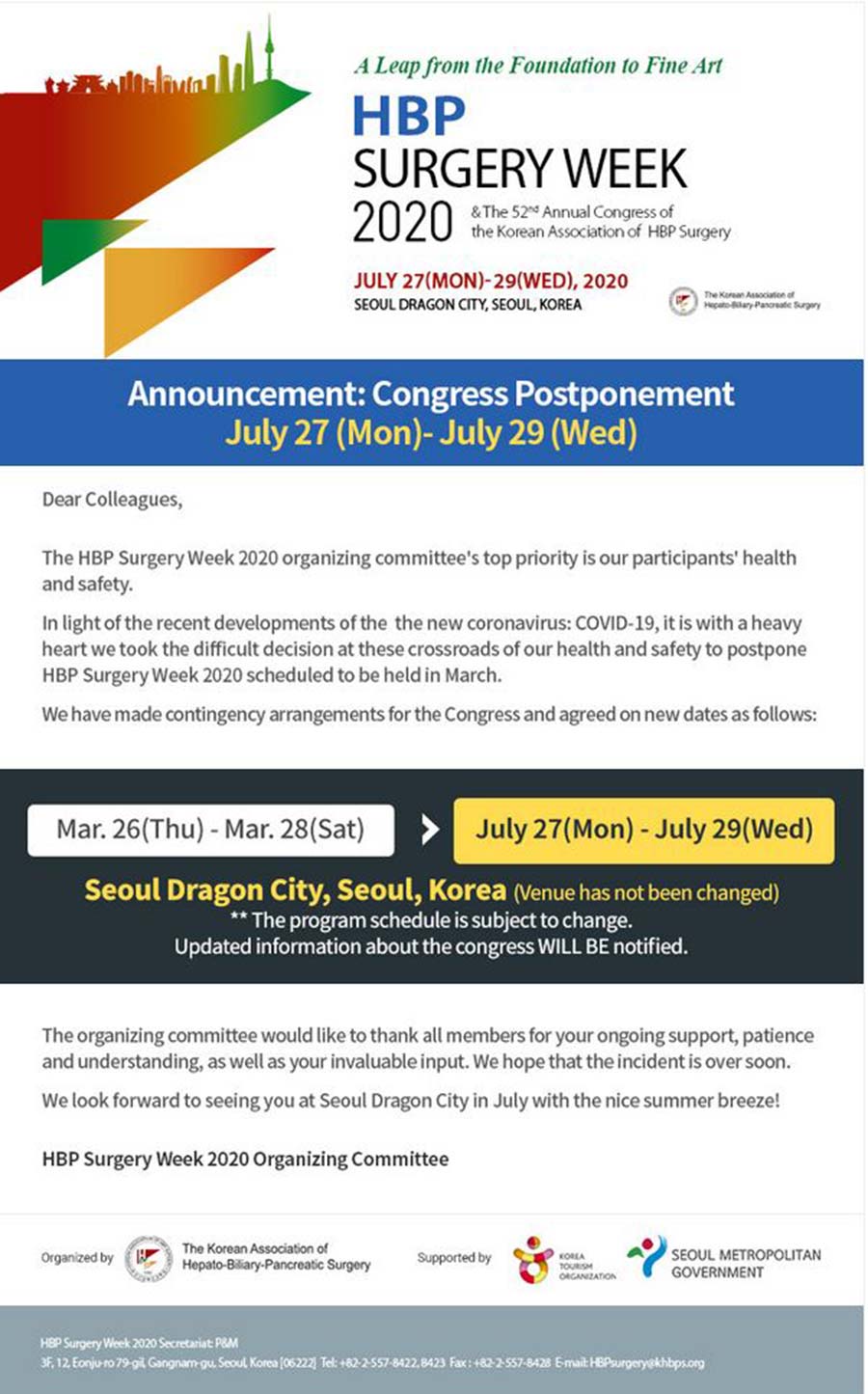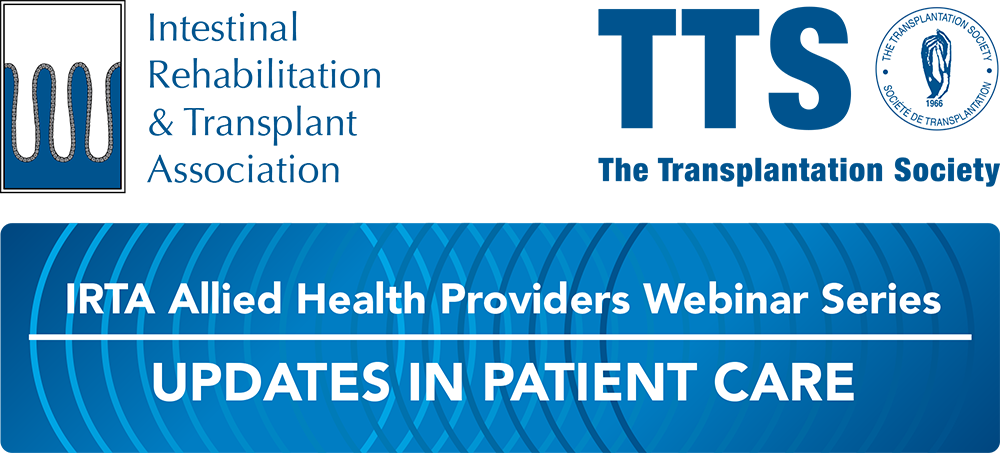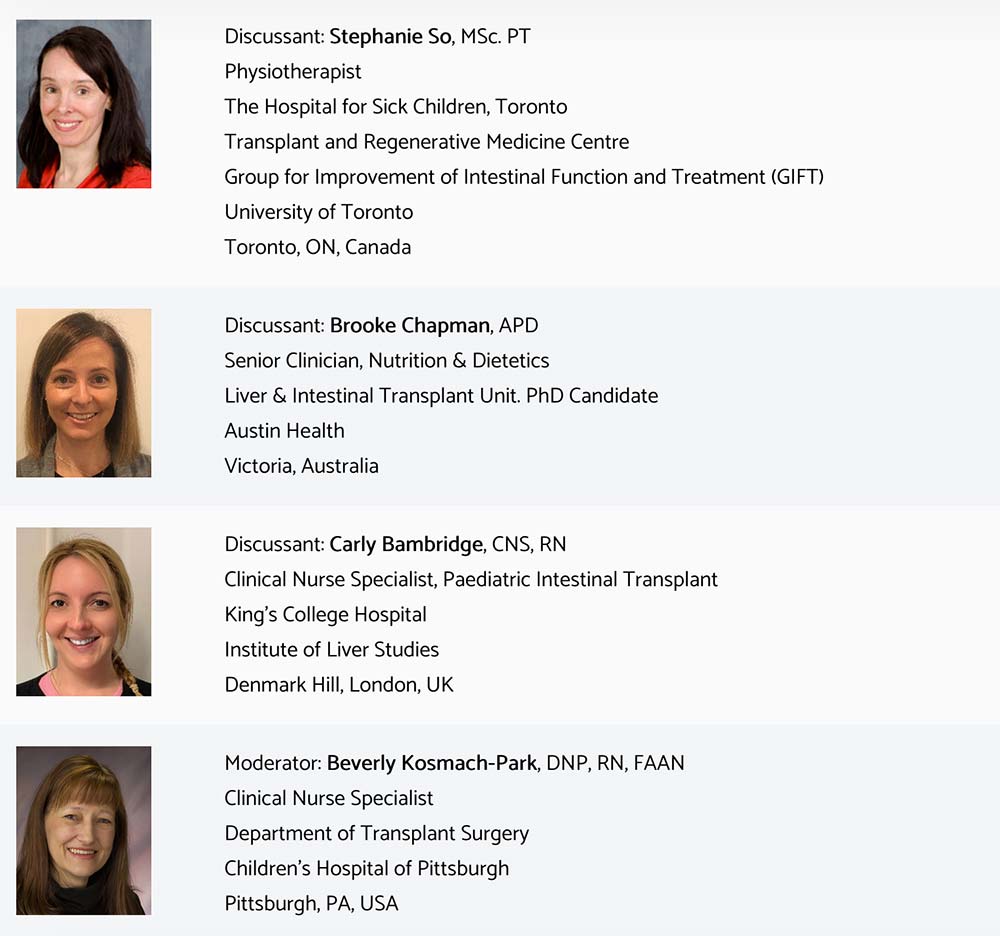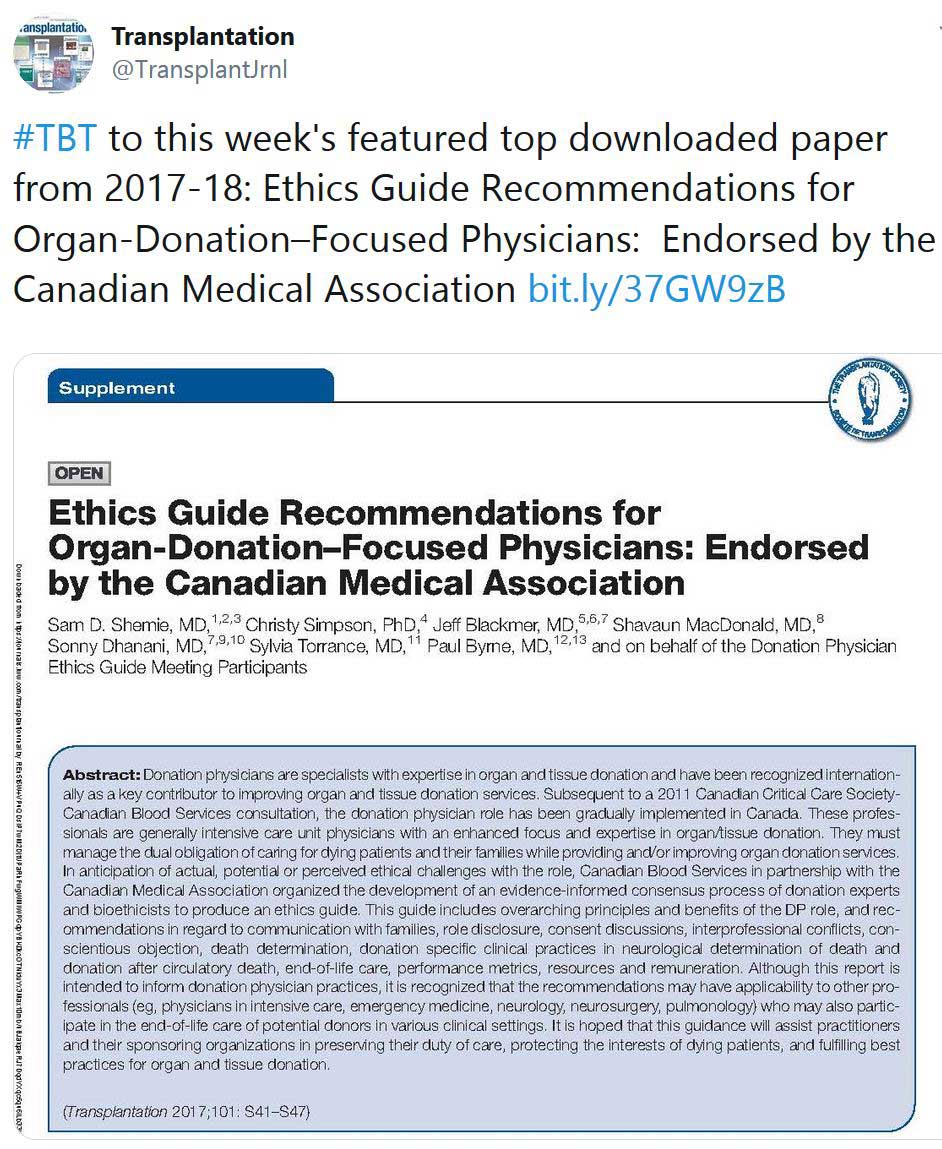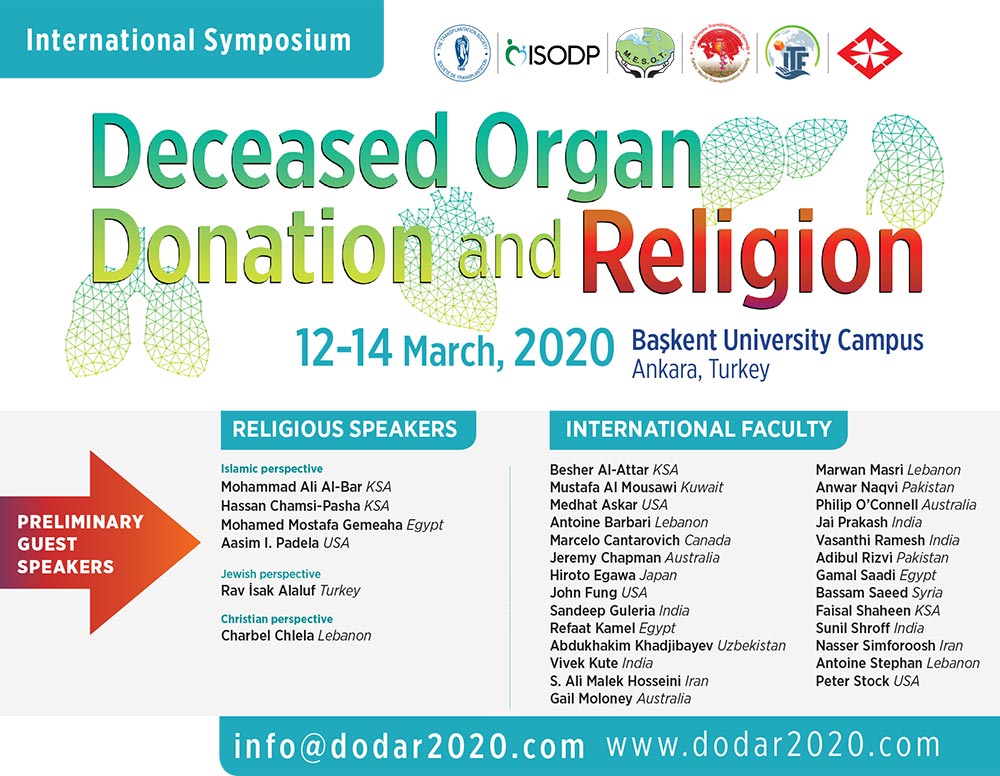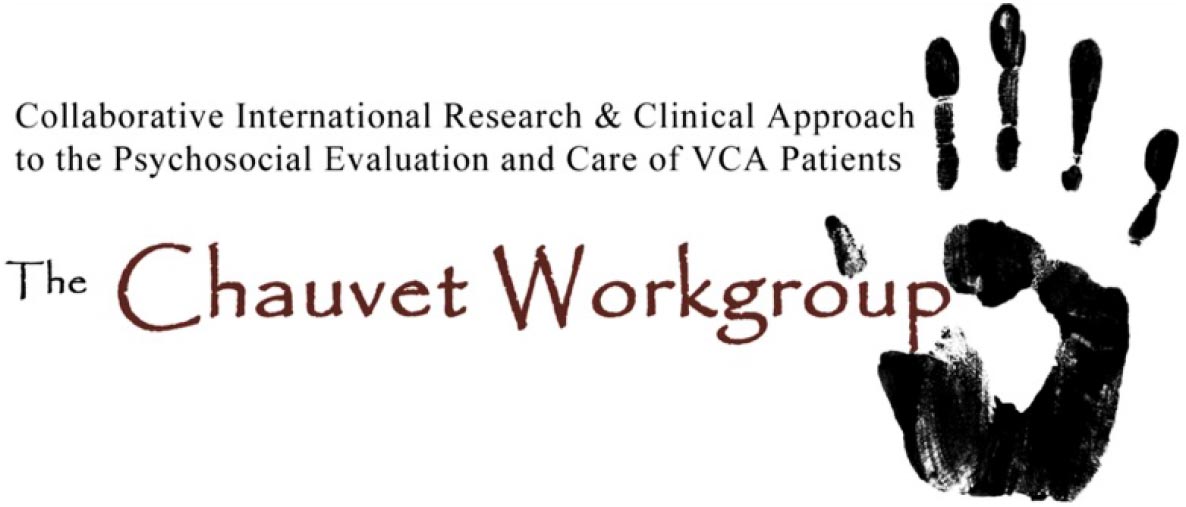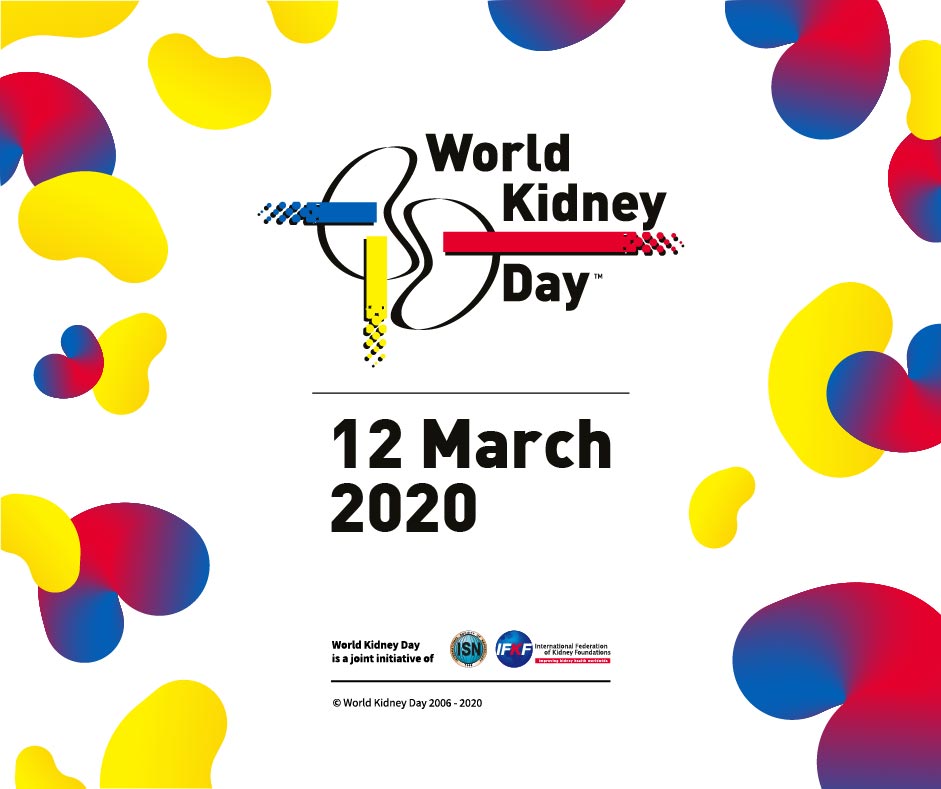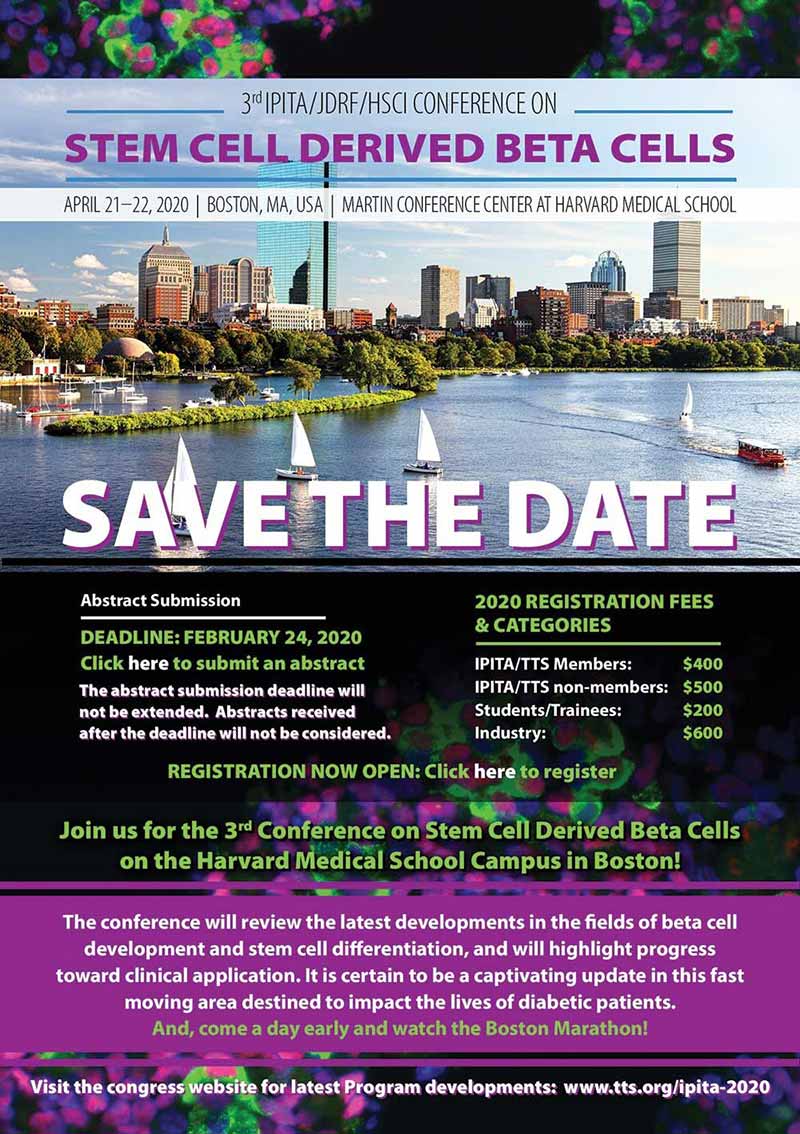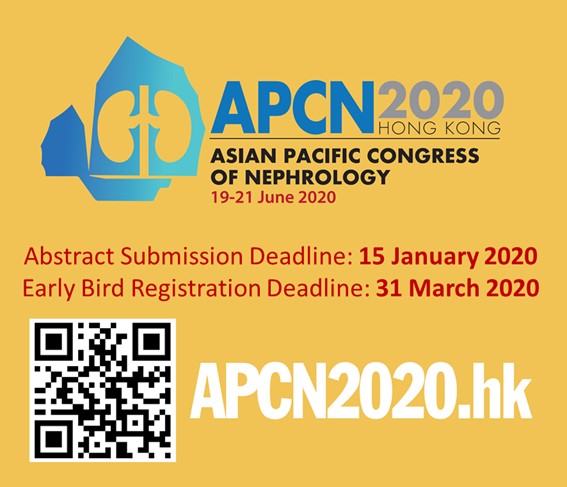
ABSTRACT SUBMISSION DEADLINE EXTENDED TO MARCH 3 AT 23:59 EST
If you are a TTS Member, we have setup an account for you in the system. You can retrieve your login credentials in the TTS Members area of tts.org.
YOUNG MEMBERS' SCIENTIFIC AWARDS

In order to help young members offset expenses to attend our Congress in Seoul, TTS 2020 will be offering Young Investigator Awards and International Transplantation Science Mentee-Mentor Awards. Award recipients will be selected on scientific merits (TTS 2020 Scientific Program Committee is extending the abstract submission deadline to Tuesday, March 3, 2020 at 23:59 EST due to the general demand from the transplantation community).
Young Investigator Awards
To be eligible for the Young Investigator Awards, you need to apply by March 23, 2020, submit an abstract to the Congress, be a trainee (within 2 years of completion of their training and/or fellowship) and be a member of TTS.
International Transplantation Science Mentee-Mentor Awards
TTS in collaboration with National and International Societies acknowledges the contribution of basic science to the field of transplantation by offering Mentee-Mentor awards.
To be eligible, you need to apply by March 23, 2020, submit an abstract to the Congress, be a graduate student or trainee (within 5 years of receiving PhD, MD), both Mentee and Mentor must attend TTS 2020 and be member of both TTS and confirmed supporting Societies.
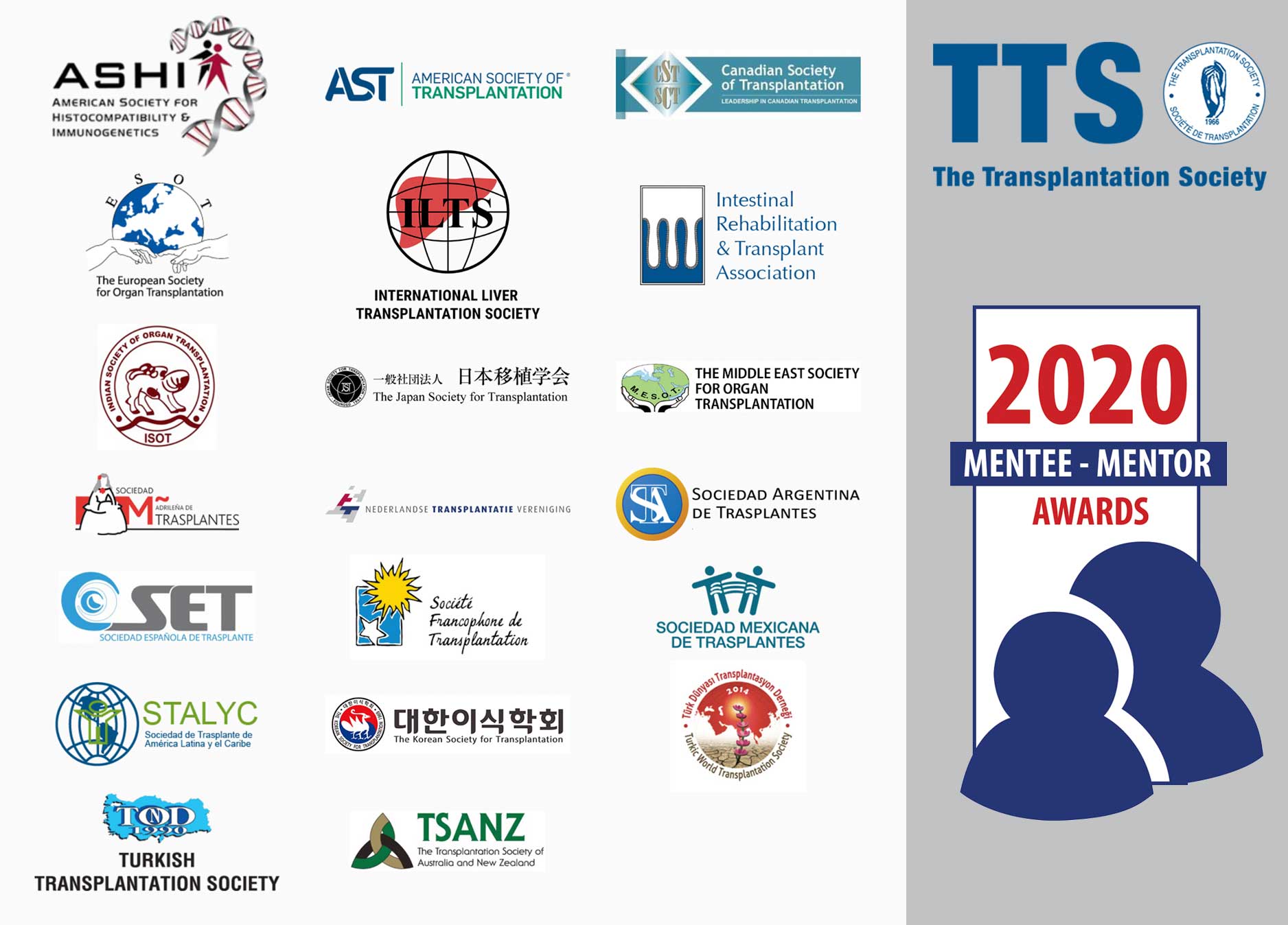
GUIDANCE ON CORONAVIRUS DISEASE 2019 (COVID-19) FOR TRANSPLANT CLINICIANS
This is the first update of Coronavirus Disease 2019 (COVID-19). It is important to note that information about this disease and our understanding of this virus and its impact on transplantation is evolving rapidly so the guidance may change over time. We plan to regularly update the guidance as new information becomes available.
IPTA OUTREACH PROGRAM 2020 - APPLICATIONS NOW OPEN!
Dear Colleagues,
The IPTA Outreach Committee is pleased to announce that applications for the 2020 Outreach Program are open. The program supports emerging centres that seek to develop or expand/enhance care in existing transplant programs.
Usually, an emerging centre will have identified a suitable supporting centre to assist them with this program; however it is possible the Outreach Committee can assist in this process.
The application package, guidelines and useful reference documents are available on the Outreach Program section of the IPTA website.
CLICK HERE TO VISIT THE WEBSITE
With many thanks,
Fiona Mackie
Chair, IPTA Outreach Committee
ANNOUNCEMENT: HBP CONGRESS POSTPONEMENT > JULY 27(MON) - 29(WED)
CALL FOR NOMINATIONS FOR VICE PRESIDENT
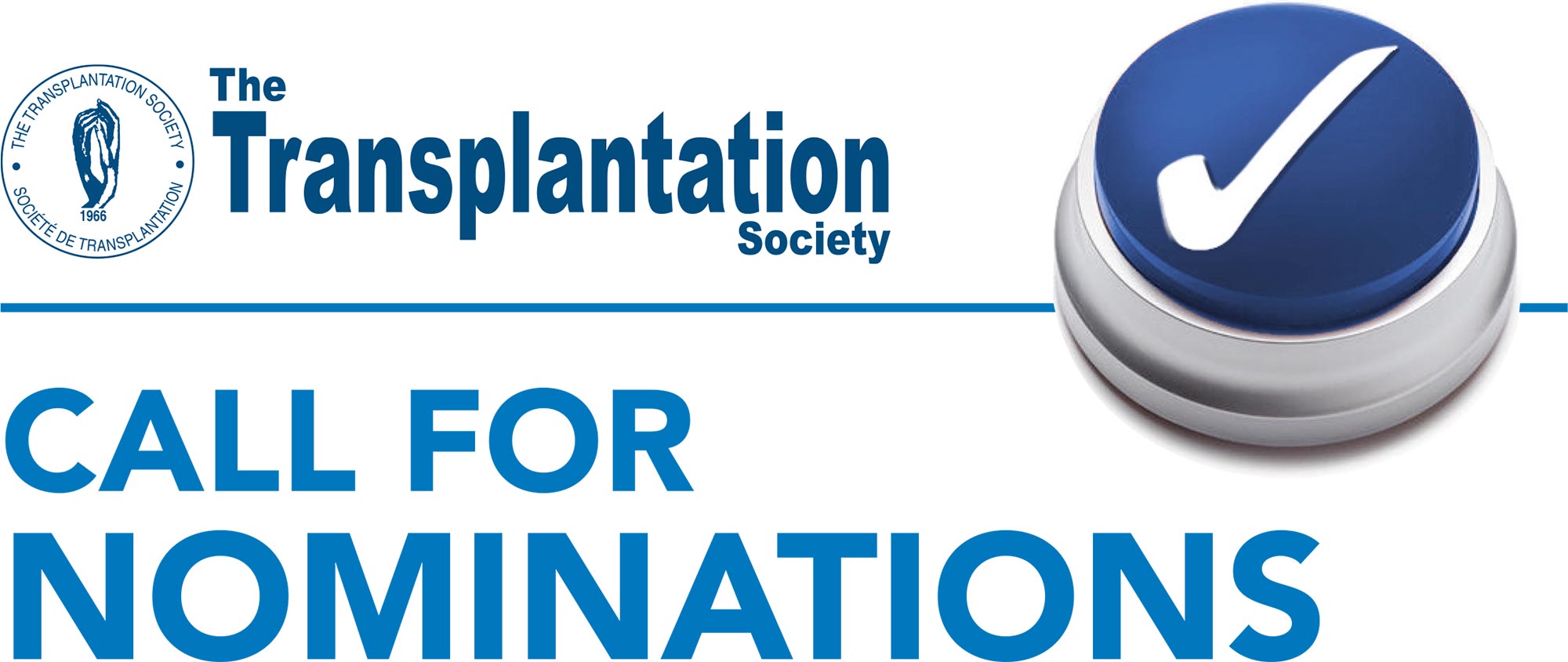
We have an opening for Vice President (2020-2024) due to current Vice President running unopposed for the position of President-Elect. The nomination period will be open for two weeks.
VIDEOS FROM TID 2019 DUBAI ARE NOW AVAILABLE FOR TID & TTS MEMBERS
UPCOMING TTS-IRTA AHP WEBINAR
PEDIATRIC INTESTINAL FAILURE AND TRANSPLANT: UPDATES IN PATIENT CARE
Webinar Summary:
The Allied Health Provider Committee of IRTA is pleased to present the first webinar of the Allied Health 2020 Speaker Series. This webinar will focus on patient care strategies and outcomes within intestinal rehabilitation and transplant. The topics presented will provide updates focusing on nutritional interventions and physical outcomes in intestinal failure as well as analgesia post-intestine transplant. Each presentation will be 15 minutes in length followed by a 5-minute question period.
TRANSPLANTATION - HIGHLIGHTED ARTICLE

Dr. Andrea Schlegel, Editorial Fellow, Transplantation
Prolonged cold ischemia time in mouse heart transplantation using supercooling preservation
Que W, Hu X, Fujino M, et al.
Transplantation: December 30, 2019 - Volume Online First - Issue - doi: 10.1097/TP.0000000000003089
In this manuscript the authors evaluated survival, function and injury after heterotopic transplantation of hearts, preserved either with standard cold storage or super-cooling. This interesting preservation technique was recently assessed in experimental liver transplantation and different groups have started with the first few testing’s with other organs, including hearts. The group here has however achieved lower temperatures with supercooling at -8°C for a prolonged time. Importantly, authors present a new, hyperosmolar preservation solution, modified from IGL-1 through addition of polyethylene glycol (PEG), glucose and trehalose for cryoprotection, and lidocaine to maintain cardioplegia and protect the myocardium. Following procurement, donor hearts were flushed with preservation solution and were placed in sealable bags filled with the same solution. The donor heart inside the bag was maintained at a temperature of -8°C in a liquid cooling apparatus for 24-144hrs. At the end of this super-cooling period, donor hearts were rewarmed and re-flushed prior to implantation. Compared to standard cold storage at 4°C, super-cooling achieved significant improved outcomes in almost all endpoints of this experimental study. Super-cooled hearts were found with a higher ATP content and a higher myocardial glycogen concentration, combined with less tissue water and lower expression of inflammatory genes, including TNF-α, IL-1β, CCL-2, when compared to standard cold stored hearts. Interestingly, super-cooling enabled revival of such cardiac grafts despite 144hrs of preservation and achieved long-term recipient survival after 96hrs preservation. In summary, this relatively young preservation approach is currently explored in different organs, as shown here for hearts. And the assessment of underlying mechanisms of protection from reperfusion injury is of great interest. In addition, the interesting question remains, if there are similarities when comparing super-cooled mitochondria with mitochondria obtained from hibernators.
TRANSPLANTATION - WEEK'S MOST DOWNLOADED PAPER
IN THE NEWS
SCIENTISTS HAVE SUCCEEDED TO MAKE HUMAN ORGANS TRANSPARENT FOR THE FIRST TIME

Feb. 14 - Scientists from Helmholtz Zentrum München managed to make human organs transparent for the first time in history. In this way, the researchers were able to reveal the cellular details of an organ.
STUDY: SURVIVAL RATES HAVE IMPROVED AFTER KIDNEY TRANSPLANTATION DURING CHILDHOOD
Feb. 14 - An analysis of information from Australia indicates that survival after kidney transplantation during childhood has improved drastically over the last 40 years, led by decreases in deaths from cardiovascular disease and infection.
LOOKING FOR CLUES TO IMPROVE THE LIFE OF A TRANSPLANTED ORGAN
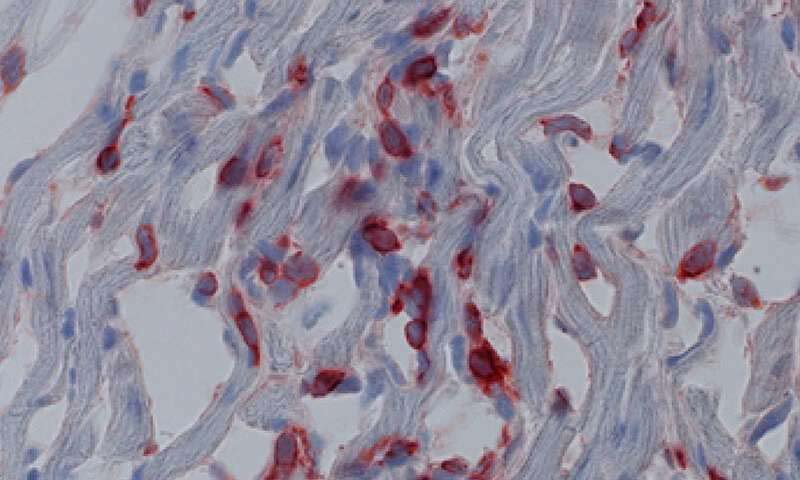
Feb. 17 - The Transplant Research Program (TxRP) at Boston Children's Hospital is the only pediatric transplantation research program in the U.S committed to better understanding the molecular basis for organ rejection after transplantation in children. Within the last year, members of the TxRP have initiated a new initiative to extend the longevity of transplanted organs and to develop and use biomarkers for monitoring patients.
COMPUTER SIMULATIONS VISUALIZE HOW DNA IS RECOGNIZED TO CONVERT CELLS INTO STEM CELLS

Feb. 14 - Researchers of the Hubrecht Institute (KNAW - The Netherlands) and the Max Planck Institute in Münster (Germany) have revealed how an essential protein helps to activate genomic DNA during the conversion of regular adult human cells into stem cells. Their findings are published in the Biophysical Journal.
HOW TO DONATE A PIECE OF YOUR BRAIN TO SCIENCE - WHILE YOU’RE STILL ALIVE
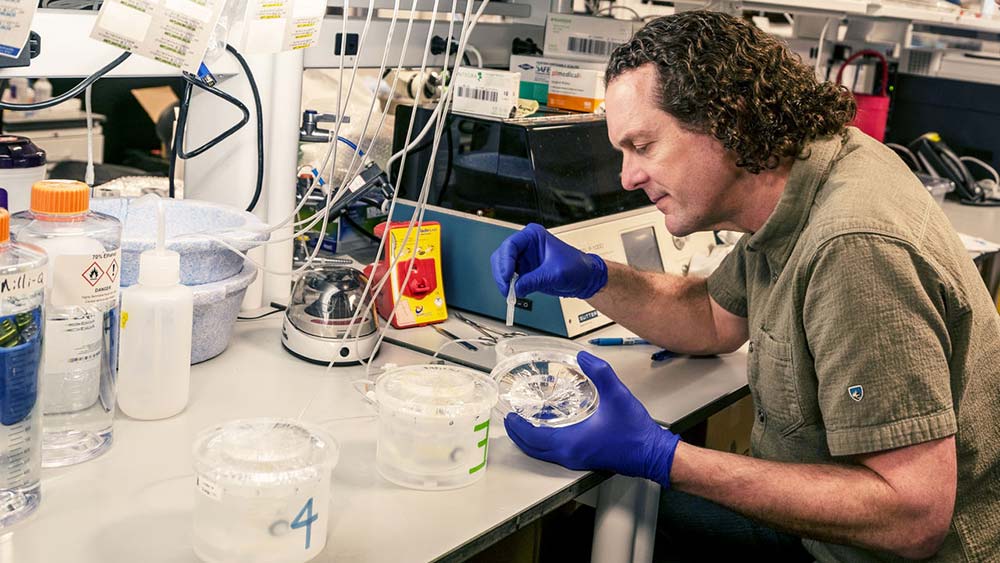
Feb. 15 - Donating a piece of your brain to biomedical research has never been easier. Scientists have developed a successful live donor program, where patients undergoing brain surgery can contribute a piece of their brain that would otherwise be tossed away. The researchers—led by neuroscientist Ed Lein at the Allen Institute for Brain Science—presented their approach at the annual meeting of AAAS, which publishes Science.
UPCOMING MEETINGS AND ANNOUNCEMENTS
DECEASED ORGAN DONATION AND RELIGION SYMPOSIUM - MARCH 12-14, 2020 - ANKARA, TURKEY
Hotel rates start at $35 USD per night for single accommodation at the Symposium Hotel.
4th International Chauvet Workshop - Save the Date!
We are excited to announce that the planning for the Chauvet 2020 meeting is well underway. This meeting is of interest to all health care providers who care for individuals with upper extremity amputations, severe facial disfigurement, absolute uterine factor infertility and those with loss of laryngeal function and all VCA candidates and recipients. If you are in any discipline with an interest in the psychosocial aspects of these patients, this meeting will interest you.
MEETING FACTS
- Location: Mayo Clinic Downtown Campus, Rochester MN, USA
- Date: April 30 (beginning at 12pm CDT) to May 2 (ending at 5pm).
- Registration fee: $310 (Includes meeting registration, two breakfasts and lunches and two gala dinners and networking events at the historic homes of Drs. William and Charles Mayo,)
- Lodging: There are several reasonably priced hotels in close proximity to the meeting location.
Email us to add yourself to our mailing list or with questions at transplant-rst@mayo.edu.
Watch for links to more information coming soon!
3rd IPITA/JDRF/HSCI Conference on Stem Cell Derived Beta Cells
18th Asian Pacific Congress of Nephrology (APCN)
Contact
Address
The Transplantation Society
International Headquarters
740 Notre-Dame Ouest
Suite 1245
Montréal, QC, H3C 3X6
Canada
Используйте Вавада казино для игры с бонусом — активируйте промокод и начните выигрывать уже сегодня!

